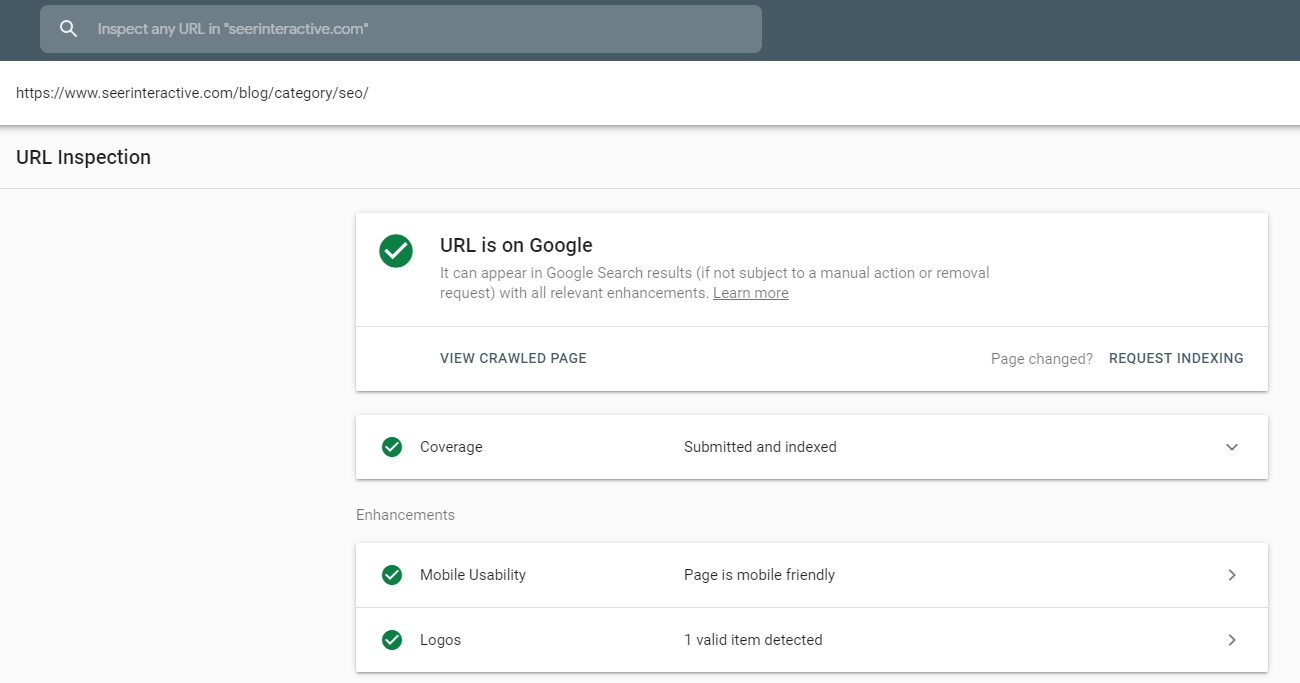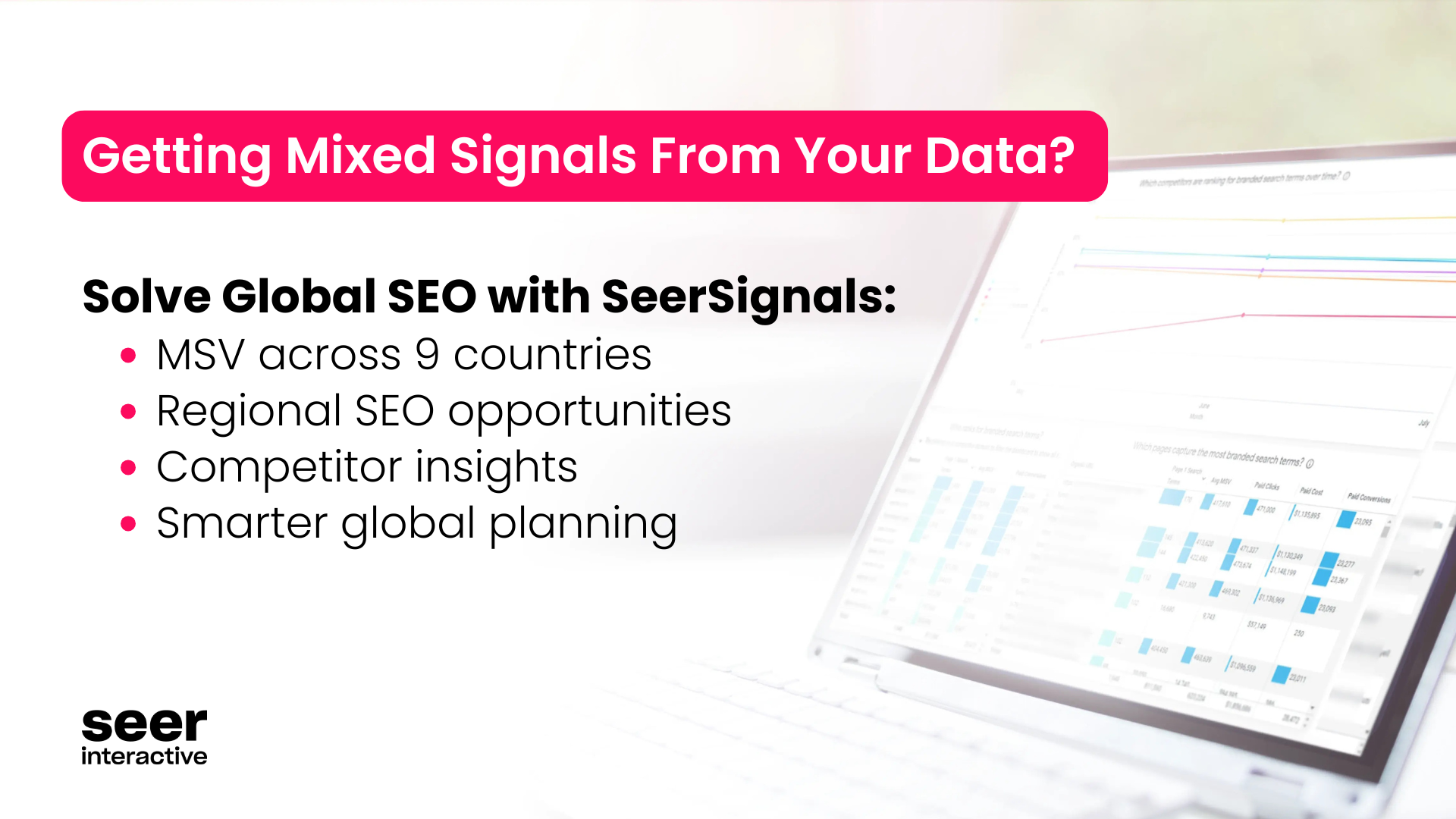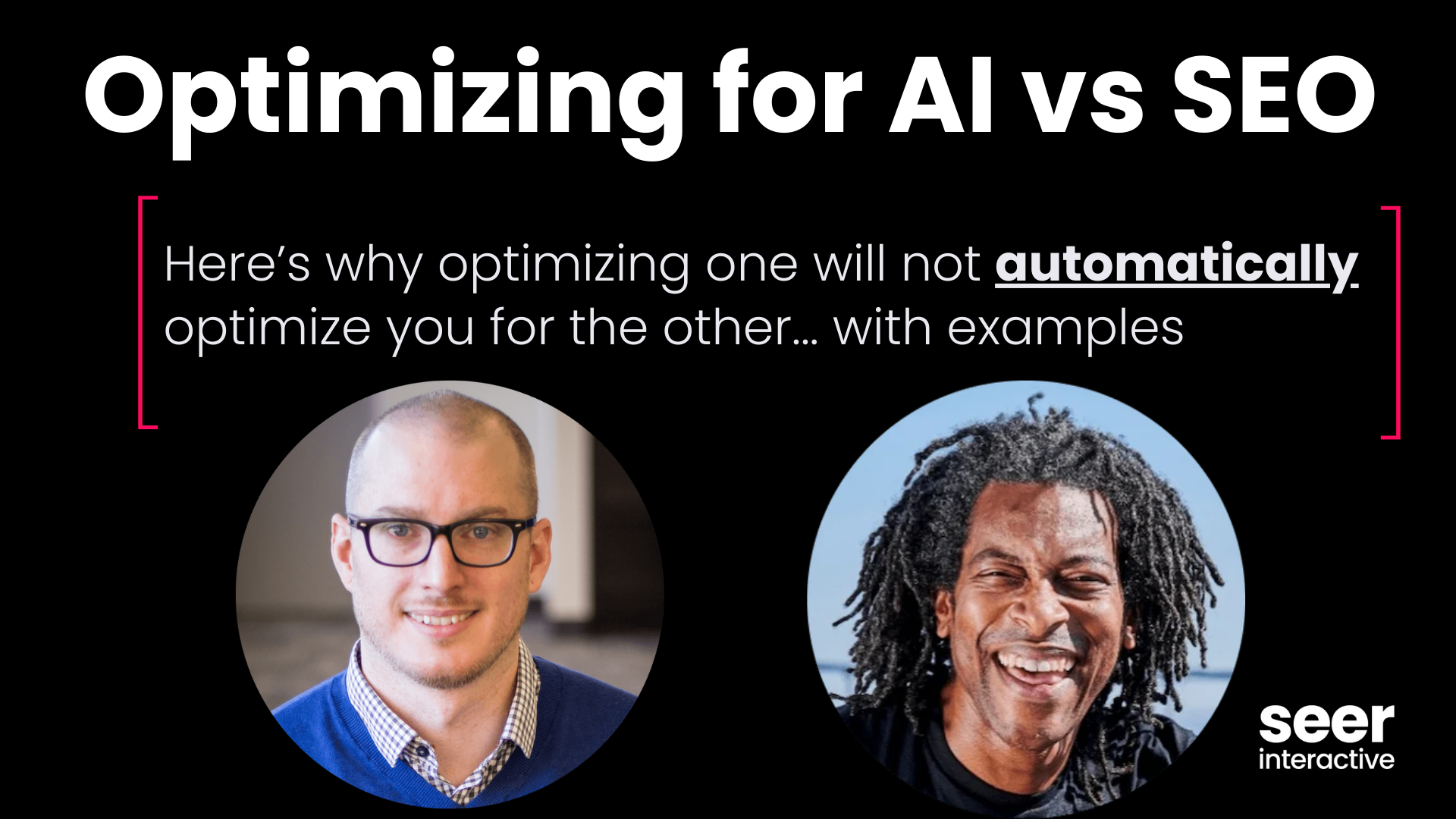Picture this: you’ve done the heavy lifting to get a new page live and you’re ready to share it with the world! A few days go by and you check performance, but you’re not getting any sessions. Or maybe the amount of traffic you’re getting isn’t exactly up to par with what you were expecting.
Below we highlight four reasons why your new page may not be getting sessions.
1) Google Can’t Find Your Page 
If Googlebot can’t crawl the page, it can’t index and rank the content. In order to check to see if Googlebot is able to crawl and index the page, you can use the Inspect a Live URL tool within Google Search Console to test the live URL.
If it returns an error, you may have just hit the nail on the head!
Common errors include: blocking the page in your site’s robots.txt file, marking the URL with a ‘noindex’ tag, a 4xx- or 5xx-level response code or some other sort of crawl anomaly. Troubleshoot errors with Google’s full list of common indexing issues.

2) The Page Hasn’t Been Live for Long 
It can take anywhere from a few days to a few weeks for Google to index and crawl your new page, pending your site’s domain authority, internal linking profile, URL structure, and more. If you’re checking on performance too soon after the page goes live, it’s normal not to see progress.
Additionally, unlike paid search, you won’t see success overnight from SEO strategy. Rather, it takes a solid one to three months for content to mature in order to see the fruits of your labor.
Be patient, let your new page live in the wild, and check back on a monthly basis to track performance.
3) You’re Targeting the Wrong Keywords 
Are you solely targeting those big-hitter keywords racking in 12,000 MSV? Given how competitive those terms are, you may want to consider a new strategy.
A strong piece of content will contain a mix of keywords with high monthly search volume and long-tail, highly-focused keywords. Because long-tail keywords are more specific, they tend to be less competitive. If your content is struggling to compete for head terms, you will likely find more success with a long-tail keyword strategy.
Additionally, it’s important to ensure the intent of your target keywords aligns with user needs. You could be missing out on opportunities by targeting a set of users with a different search intent.
4. Your Content Isn’t Able to Compete 
Have you considered the type of content competitors are ranking for in comparison to your new page? If not, this is a good place to start. Audit your new piece of content and consider what Google deems valuable and where your piece of content may be lacking.
Is your page clearly addressing the users’ needs? Is the format of your page different from page-one competitors? Do you just not have enough on-page content to compete? These are great questions to ask yourself as you begin to audit your page.
If your page is technically sound, dig into your on-page content. If you’re not using paid data to inform your SEO optimizations, STOP what you’re doing and STOP GUESSING!
Follow this simple checklist to assess why your new page isn't performing. Still stumped? Contact us to help you diagnose the issue!
Looking for more tips on how to optimize your website or improve performance? Subscribe to our newsletter for more tips on SEO, Paid Search, Analytics, and more!


